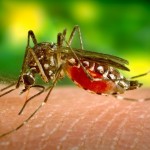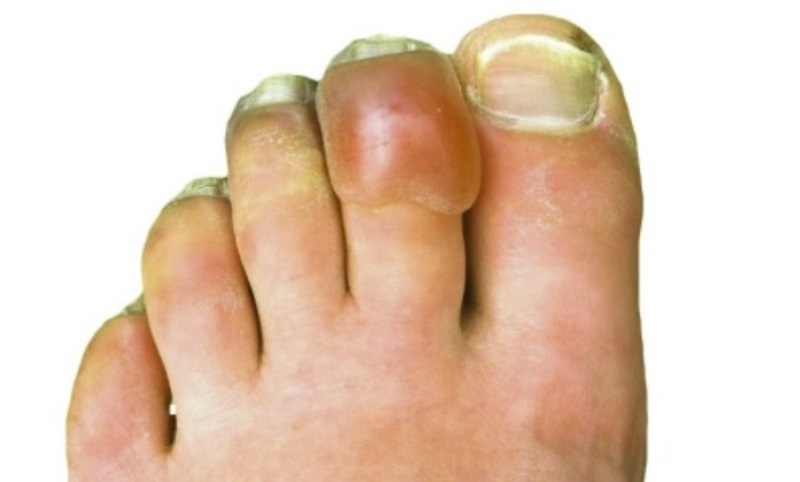Anemia is a condition in which there’s a marked decrease in the amount of red blood cells (RBCs) or hemoglobin in the body. Alternatively, anemia can also be described as the decreased ability of the blood to carry oxygen to tissues and organs. A level of less than 13g/dL (grams/deciliter) of hemoglobin in men, and less than 12g/dL of hemoglobin in women is considered as anemic.
Suggested read: 20 amazingly effective natural home remedies for wrinkles
There are mainly three types of anemia:
- Due to blood loss
- Causes include trauma, gastrointestinal bleeding, cancer, heavy bleeding during menstruation, pregnancy, ulcers, etc.,
- Due to decreased red blood cell production
- Causes include iron deficiency, thalassemia, deficiency of vitamin B12 and folic acid, several neoplasms of the bone marrow
- Due to increased red blood cell breakdown
- Causes include sickle cell anemia, malarial infections, and certain autoimmune diseases.
Women, along with those suffering from chronic disease are at a higher risk for anemia. Symptoms of anemia may range from mild to severe, depending on how anemic a person is. Common symptoms include pale skin, tiredness, shortness of breath, fast or irregular heartbeat, headaches, cognitive problems, cold hands and feet, lightheadedness, lethargy, altered taste, tinnitus, brittle nails, sore gums and throat, hair loss, low or high blood pressure, among others.
Although these causes and symptoms may seem scary, anemia is a mild enough condition in most cases, that they can be cured with home remedies to bring up your hemoglobin levels. Let’s take a look at some natural, home remedies for anemia that can work wonders, without any side effects.
1. Beetroot

Image source: Google, copyright-free image under Creative Commons License
The most common type of anemia is one that is caused due to iron deficiency. And beetroot has high iron content, along with dietary fiber, folic acid, potassium, sulfur, calcium, and vitamins. Not only will it provide the necessary iron content and other vital nutrients, it also helps cleanse the body from the inside out and helps supply more oxygen throughout the body. This boosts the red blood cell count in the body.
Remedies: (1) Take 1 medium-sized beetroot, 3 carrots, and half a sweet potato and blend them together to make a soupy juice. Drink this once daily.
(2) Another easy way is to use beetroot in cooked dishes or by tossing it in salads, raw. The peel of the beetroot is highly nutritious as well. So you might want to eat this veggie with the peel.
2. Apple juice
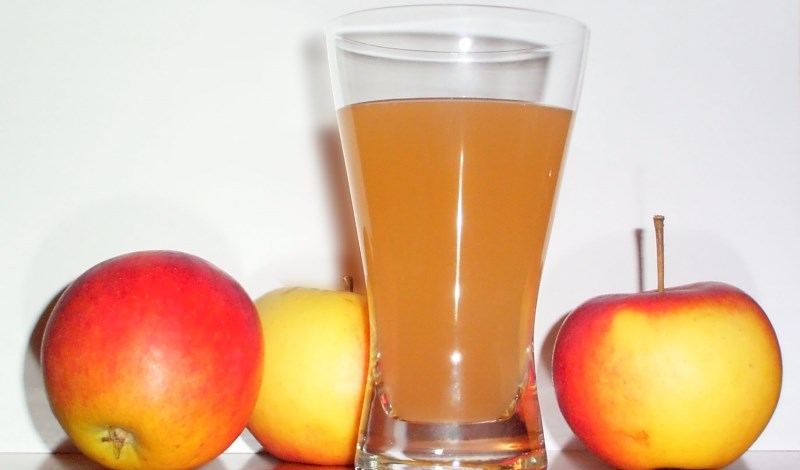
Image source: Google, copyright-free image under Creative Commons License
Apples are rich in iron, and other vital nutrients. An apply by itself is good to combat anemia, but in conjunction with beetroot, it packs quite a punch. The iron from apples, and folic acid and potassium from beetroot, almost doubles up against anemia.
Remedy: Mix 1 cup of apple juice with 1 cup of beetroot juice. Stir in 1-2 teaspoons of honey into it, and drink it twice a day regularly.
3. Blackstrap molasses
Blackstrap molasses is said to be a nutritional powerhouse that is filled with iron, B vitamins, and other vital nutrients that help combat anemia successfully by helping increase the red blood cell production. Just one tablespoon of blackstrap molasses is supposed to provide almost 15 percent of your daily allowance of iron.
Remedies: (1) Stir in 1 tablespoon of blackstrap molasses in a cup of warm milk or hot water. Drink this once or twice daily.
(2) Take 2 teaspoons each of blackstrap molasses and apple cider vinegar and stir this in to a 1 cup of water. Drink this solution once daily for best results.
4. Wheatgerm iron tonic
Wheatgerm is a portion of wheat kernel, that is removed during processing refined flour. However, wheatgerm is packed full of essential nutrients, mainly iron and zinc.
Remedy: Take 1 tablespoon each of wheatgerm, blackstrap molasses, canola oil, and brewer’s yeast. Mix all of these into half a cup of orange juice and stir well. If you want a smoother consistency than this, you can blend all of these together too. Drink this wheatgerm iron tonic 1-3 times every day.
5. Spinach

Image source: Google, copyright-free image under Creative Commons License
As you very well know, green leafy vegetables like spinach contain several essential nutrients, including iron, vitamin B12, and folic acid. All these are vital in fighting off anemia. Just half a cup of spinach is capable of providing you with 35 percent of your daily allowance of iron and 33 percent of your daily allowance of folic acid.
Remedies: (1) Extract fresh spinach juice by blending it in with couple of teaspoons of honey. Drink this once a day.
(2) Another alternative is to eat spinach soup, at least twice daily. For this, blanch 1 cup of fresh spinach in a pan. Then purée it by adding a bit of water. Chop a couple of garlic cloves and one medium-sized onion. In a pan, heat 1 teaspoon of extra virgin olive oil and sauté the chopped garlic cloves and onions until they brown. Now add the puréed spinach into it and add salt to taste. Cook this on low heat for about 5-10 minutes.
Pro tip: For significant results, follow this remedy for at least one month.
Suggested read: 15 wondrous home remedies for irregular periods
6. Bottle gourd
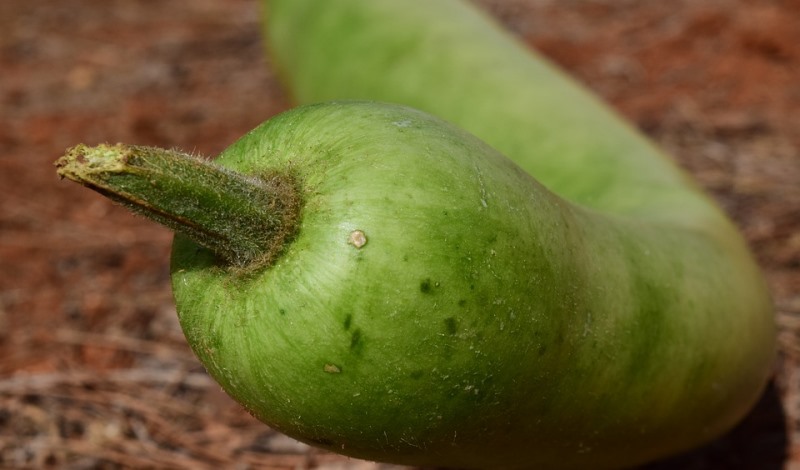
Image source: Google, copyright-free image under Creative Commons License
Bottle gourd is an excellent vegetable that is full of iron and folic acid, which help fight anemia caused due to nutritional deficiencies.
Remedy: Chop 1 bottle gourd, half a beetroot, and 1 cup of spinach. Fill a pan with 2 glasses of water and add the chopped veggies and greens to it. Cover the pan and let it come to a boil. By this time, the veggies should be soft. Now you can eat this soup in two ways: one, by leaving the veggie pieces as is, or two, by mashing the veggies completely. Eat this soup daily to fight off anemia successfully.
7. Pomegranate
Not only is pomegranate rich in iron, it also contains other minerals like calcium and magnesium, and vitamin C, which helps improve iron absorption in the body. This results in the production of more red blood cells and an increase in the hemoglobin level.
Remedies: (1) Take 1 cup of pomegranate juice, and add 2 teaspoons of honey and a quarter teaspoon of cinnamon powder. Mix well and drink this every day with your breakfast.
(2) Including a pomegranate into your daily dietary intake works too.
(3) Add 2 teaspoons of dried pomegranate seed powder to a glass of warm milk, and drink this once or twice every day.
8. Raisins
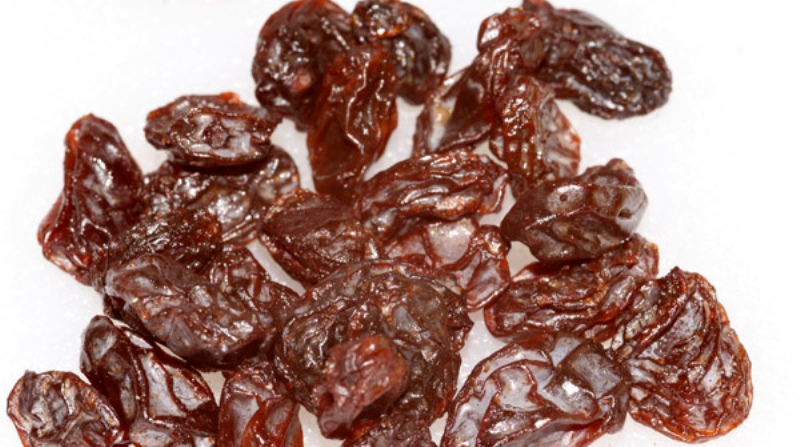
Image source: Google, copyright-free image under Creative Commons License
Raisins contain iron, fiber, sodium, protein, calcium, and potassium. Just about 100g of raisins can provide up to 1.88mg of iron, making it one of the best home remedies for anemia.
Remedy: Soak about 10-15 raisins in half a cup of water overnight. The next morning, have them with a teaspoon of honey. Use this remedy daily for about a month or two.
9. Sesame seeds
With a high iron content, sesame seeds are ideal for treating anemia. In fact, just a quarter cup of sesame seeds can supply almost 30 percent of your daily allowance of iron.
Remedies: (1) Take 2 tablespoons of black sesame seeds and soak it in water for about 2-3 hours. Strain and make a paste with the sesame seeds. To this paste, add 1 tablespoon of honey and mix well. Have this at least twice every day.
(2) Take 1 teaspoon of black sesame seeds and soak it in warm water for about two hours. Make a paste out of this and then strain to get the emulsion. Now, stir this in to a cup of warm milk. Add honey or jaggery for taste, and mix well. Drink this at least once a day.
10. Dates

Image source: Google, copyright-free image under Creative Commons License
Dates are amazingly high in iron content. 100g of dates contain as much as 0.90mg of iron, making them one of the best natural remedies for anemia. Dates also contain minerals like magnesium, calcium, manganese, and copper in significant amounts too.
Remedies: (1) Grab a handful of dates and munch on them on an empty stomach in the morning. Follow this up with a cup of warm milk.
(2) Take a couple of dates and soak them in a cup of milk overnight. The next morning, eat the dates and finish off the milk on an empty stomach.
11. Bananas
Bananas may seem innocuous, but are packed with iron and thus help stimulate hemoglobin production. They are also a rich source of magnesium, that is essential for hemoglobin synthesis.
Remedies: (1) Have one ripe banana with one tablespoon of honey at least twice daily.
(2) Mash one ripe banana and 1 tablespoon of Indian gooseberry juice. Have this twice or thrice every day.
12. Parsley

Image source: Google, copyright-free image under Creative Commons License
Parsley is a widely used culinary herb, and is easily available the world over. Parsley is a rich source of iron and folic acid, both of which help combat anemia. Just 100g of parsley contains about 5.5mg of iron. Also, the vitamin C present in this herb helps absorb iron easily into the body.
Remedies: (1) Use fresh parsley in sandwiches, salads, soups, gravies, stews, and even some sauces.
(2) Add parsley to any juice for that added taste; not more, just about 1-2 tablespoons should do it.
(3) Pour hot water onto parsley leaves and let it sit for a few minutes. Strain and drink this ‘tea’ twice or thrice daily. You can add a teaspoon of honey to this to make it more palatable.
Suggested read: 15 super effective home remedies for an upset stomach
Although these home remedies for anemia work wonders if followed regularly, there is nothing like a well-balanced diet to prevent the recurrence of anemia. So keep these things in mind while planning a well-balanced diet and include:
- Iron-rich foods like figs, beets, brown rice, whole grains, eggs, raisins, almonds, beans, sweet potatoes, grapes, seafood, and molasses.
- Potassium-rich foods like bananas, vegetables, whole grains, kiwi fruit, broccoli, and dried fruits.
- Manganese-rich foods like nuts, pineapple, eggs, legumes, and whole grains.
- Vitamin C-rich foods like citrus fruits, chives, green pepper, and tomatoes.
- Folic acid-rich foods like kidney beans, black-eyed peas, mushrooms, and fresh green leafy vegetables.
- Avoid having too much coffee, tea, beer, or even carbonated sodas like colas with meals.
Featured image source: Google, copyright-free image under Creative Commons License



